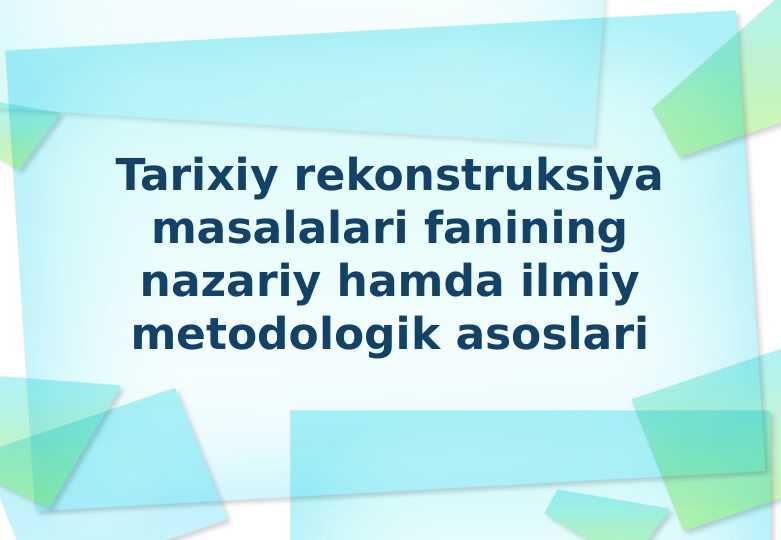STRUCTURAL AND SEMANTIC PECULIARITIES OF PHRASEOLOGICAL UNITS WITH “FOOD” COMPONENT IN THE ENGLISH LANGUAGE
Dissertatsiya ishlari | Ingliz tili
35
Mualliflik huquqi buzilgan holatdashikoyat qiling!
25 990 so'm
- Betlar soni: 94 ta
- Fayl hajmi : 214.4 KB
- Fayl turi: .docx
Mahsulot tavsifi
STRUCTURAL AND SEMANTIC PECULIARITIES OF PHRASEOLOGICAL UNITS WITH “FOOD” COMPONENT IN THE ENGLISH LANGUAGE
CONTENTS
INTRODUCTION
CHAPTER I Theoretical part of the research
1.1 PHRASEOLOGY AND ITS OBJECT
1.2 PHRASEOLOGICAL THEORIES IN MODERN LINGUISTIC
The outcomes of Chapter 1
CHAPTER II THE PHRASEOLOGICAL UNITS IN THE ENGLISH LANGUAGE
2.1 THE ETYMOLOGY OF PHRASEOLOGICAL UNITS IN THE ENGLISH LANGUAGE
2.2 THE CLASSIFICATION OF PHRASEOLOGICAL UNITS IN THE ENGLISH LANGUAGE
2.3 PHRASEOLOGICAL UNITS AND THEIR CONSTANT FUNCTIONS
The outcomes of Chapter 2
CHAPTER III STRUCTURAL AND SEMANTIC PECULIARITIES OF PHRASEOLOGICAL UNITS WITH “FOOD” COMPONENT
3.1 STRUCTURAL ANALYSIS OF PHRASEOLOGICAL UNITS IN THE ENGLISH LANGUAGE
3.2 SEMANTIC ANALYSIS OF PHRASEOLOGICAL UNITS WITH IN THE ENGLISH LANGUAGE
3.3 STRUCTURAL AND SEMANTIC CLASSIFICATION OF PHRASEOLOGICAL UNITS WITH “FOOD “ COMPONENT
Bibliography
Literatures in English
Literatures in Russian
Literatures in Uzbek
Used Dictionaries
Dissertations
Phraseology studies collocations of words (phraseologisms, phraseological units, idioms), where the meaning of the whole collocation is different from the simple sum of literal meanings of the words, comprising a phraseological unit. For example, ‘The Dutch auction’ is not an auction taking place in the Netherlands. The meaning of this phraseological unit refers to any auction, where instead of rising, the prices fall (compare “Dutch comfort”, “Dutch courage”, “Dutch treat” reflecting complicated historical factors). Phraseological units are stable word groups with partially or fully transferred meanings ("to kick the bucket", “Greek gift”, “drink till all's blue”, “drunk as a fiddler (drunk as a lord, as a boiled owl)”, “as mad as a hatter (as a march hare)”).
Opinions differ as to how the phraseological units should be defined, classified, described, and analysed. To make matters worse no two authors agree on the terminology they use. The word "phraseology", for instance, has very different meanings in different countries. In Russian linguistic literature, the term has come to be used for the whole ensemble of expressions where the meaning of one element is dependent on the other, irrespective of the structure and properties of the unit; with other authors, it denotes only such set expressions which, as distinguished from idioms, do not possess expressiveness or emotional colouring, and also vice versa: only those that are imaginative, expressive and emotional. N. N. Amosova overcomes the subjectiveness of the two last-mentioned approaches when she insists on the term being applicable only to what she calls fixed context units, i.e. units in which it is impossible to substitute any of the components without changing the meaning not only of the whole unit but also of the elements that remain intact. O. S. Ahmanova has repeatedly insisted on the semantic integrity of such phrases prevailing over the structural separateness of their elements. A. V. Koonin lays stress on the structural separateness of the elements in a phraseological unit, on the change of meaning in the whole as compared with its elements taken separately, and on certain minimum stability.
All these authors use the same word "phraseology" to denote the branch of linguistics studying the word groups they have in mind.
Continued intelligent devotion to the problems of the phraseology of such scholars as N. N. Amosova, A. V. Koonin, and many others has turned phraseology into a full-fledged linguistic discipline; it is included into the course of lexicology only because so far this is where it belongs according to the curriculum.
In English and American linguistics the situation is very different. No special branch of study exists and the term "phraseology" is a stylistic one, meaning 'mode of expression, peculiarities of diction, i. e. choice and arrangement of words and phrases characteristic of some author or some literary work.
The word "idiom" is even more polysemantic. The English use it to denote a mode of expression peculiar to a language, without differentiating between the grammatical and lexical levels; "the syntactical or structural form peculiar to a given language". It may also mean a group of words whose meaning is difficult or impossible to understand from the knowledge of the words considered separately. Moreover, "idiom" may be synonymous with the words "language" or "dialect", denoting a form of expression peculiar to a people, a country, a district, or to one individual. There seems to be no point in enumerating further possibilities. The word "phrase" is no less polysemantic.
ISLOMBEK TIM
🔍
Izlaganingizni topa olmadingizmi?
Balki uni aynan siz uchun yaratish kerakdir!
Sizga mos yechim tayyorlaymiz!













 YouTube
YouTube Telegram
Telegram Instagram
Instagram LinkedIn
LinkedIn